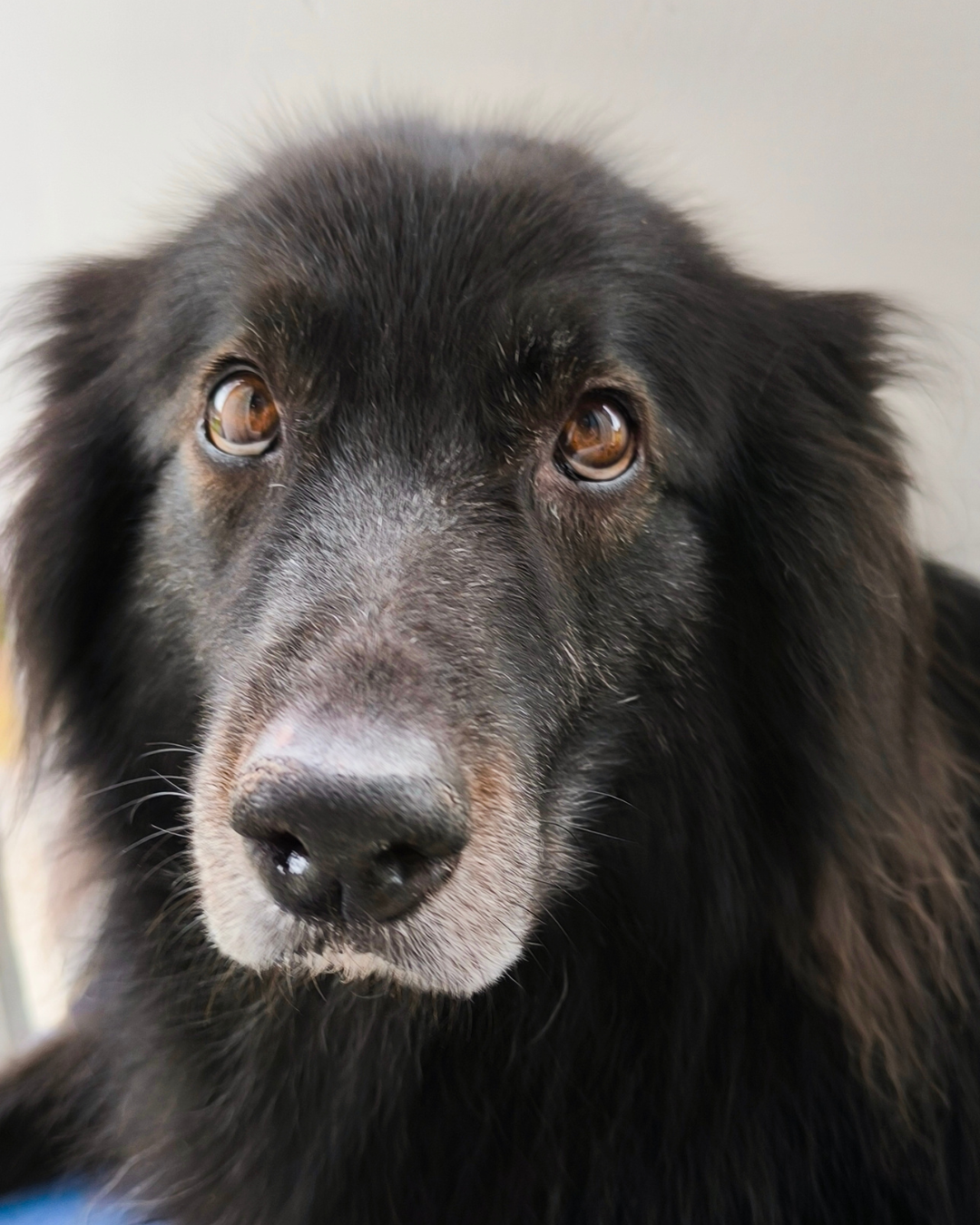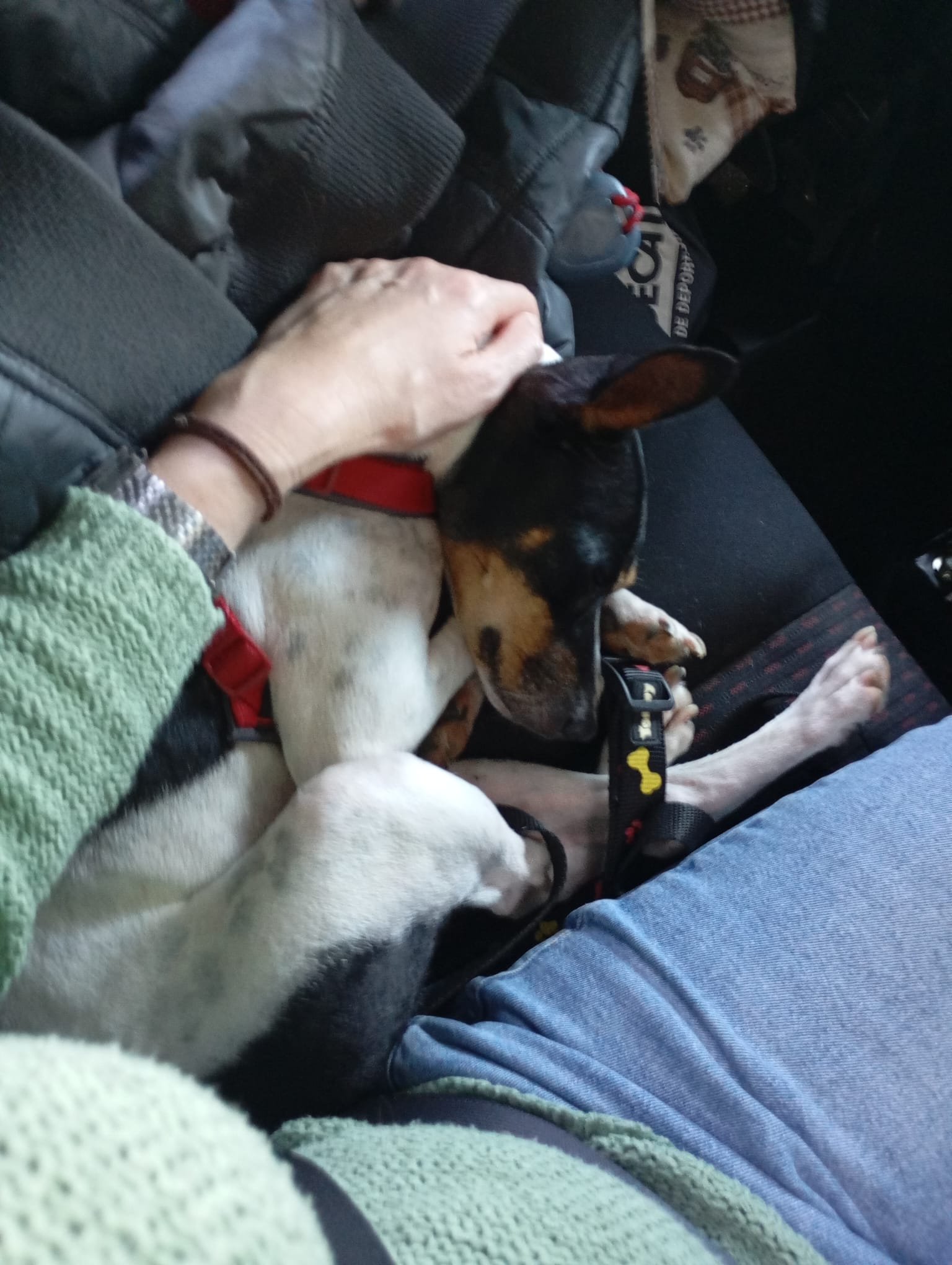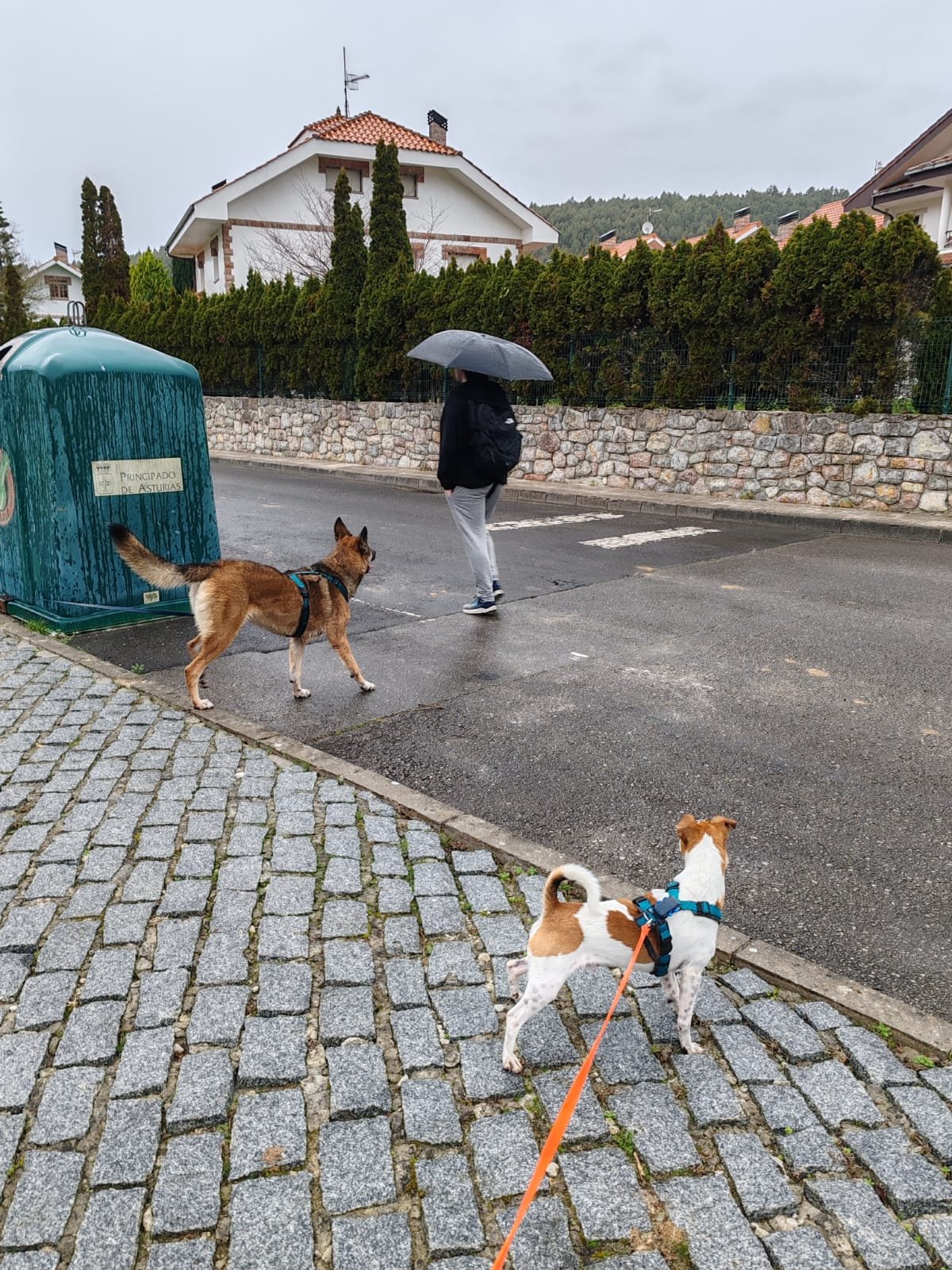Blog
Click on the category to see related posts below:

When our dog’s needs get neglected

The life stages of dogs
Puppies, seniors and everything in between. Which life stages do dogs go through and how do we best support them - and ourselves - in each of them?

How to help a dog who is afraid of storms?
Many dogs are very afraid of storms. What can we do to help prevent a maladaptive fear of storms from developing and/or to manage the situation to make it easier for the dog to cope?

Are you stuck in a conflict with your dog?
Not every walk with our dog is an idyllic Smiling Leash walk. We are two different individuals, and our ideas, opinions, and desires do not always match. Conflicts happen, in this article learn how to deal with them.

Holy Cow!
Experience, genetics and even the environment can affect how are dogs responds to cows and other animals. Explore with us the reasons and how a long smiling leash can help in these situations.

When Two Is a Crowd
There are many benefits to walking your dogs separately and it could be the best option for your dogs. Walking them separately may lead to calmer and more enjoyable walks for everyone involved. Explore with us this topic and learn why walking your dogs separately could make a big difference to your dogs’ wellbeing.

Giving our dogs choices
Freedom of choice is essential to our dogs’ mental health and behavioural change. But it can also be daunting to caretakers who wish to keep their dogs safe and worry about hindering their progress …

Leash Greetings And Good Vibes
On leash greetings need careful planning and considerations. To make dogs t ease we need to consider their body language amongst other things.
That's because they use this language to greet other dogs and they need to move their body freely to be able to articulate what they want to transmit in the meeting.

Dog Loneliness Crisis
Most of us would say that we brought a dog in our lives to be a companion for us. But is their role really a companion now?
Do we have enough time to spend with them and share their interests? Or our interactions with our dog are mostly made up of the basic care tasks?

Fear has many faces
Dogs who are afraid cower and try to escape. But sometimes they also bark, growl, lunge and get very close to what they are afraid of. Understanding different expressions of fear is essential when we try to help them get over it.

When Everything I Do Is Futile
Learned helplessness describes a psychological state in which an individual, including dogs, stops responding to any stimuli around them. The dog has been subjected to stressful stimuli, difficult situations, even harm, on repeated occasions, over and over. With the passage of time the dog understands that there is nothing they can do regarding the outcome of such situations, and they stop trying to influence change.

Should you trust your dog?
Dogs need to have agency in their lives, but they should not be expected to handle things they are not naturally equipped for. How can we tell when to trust our dog and when that would be unfair?

Mind the easy ones
Some dogs exhibit very obvious behaviours that show us they are having trouble, like barking, lunging, destructiveness and so on. Others do no such thing. Does that mean they are problem-free?

Why won’t my dog slow down?
Slow, relaxed walks without frantic feelings and pulling on the leash may see like a distant dream for some, but they can be achieved with a bit of detective work.

Useful Strategy for City Walks: Splitting Up
Splitting up is a management technique we can all use in difficult situations. We can use different elements in our daily walks as a useful barrier between something worrisome and your dog.

When Puppies Have a Difficult Start in Life
When dogs are puppies, infants of the canine species, we should ensure they are nurtured. That we surround them with love and safety. They will pass this period feeling safe and protected, allowing the puppy to develop without worry.

Shifting our perspective
We write about Smiling Leash walks meaning a special moment that you can share with your dog. But for most of us walks are not really special, we take our dogs out several times per day and it may feel like routine. In this article we take a different perspective on these routine walks.

Social walks are not just about dogs
When we walk with dogs where the bond is strong, they know themselves and the others well, they care for the wellbeing of every individual and the collective. Humans bond too and true friendships emerge.

The importance of meaningful relationships
What are some myths around social walks in dogs? Why forming meaningful relationships is so important to dogs? How we can help them do it even if we have a sensitive dog? Our guest writer Clara López-Brea will answer in this interesting and practical article.

You need to train yourself first
Our dog needs training to walk with a loose leash. That's a given. Or is it? We would argue that we people need the training first.
That's because the behaviour of our dog and the quality of our walk hugely depend on our own actions. In most cases of dogs pulling on the leash, no training for the dog is necessary - it's the humans who can make several important changes to help their dog. Let's take a closer look at what we can do to drastically improve the walks:
